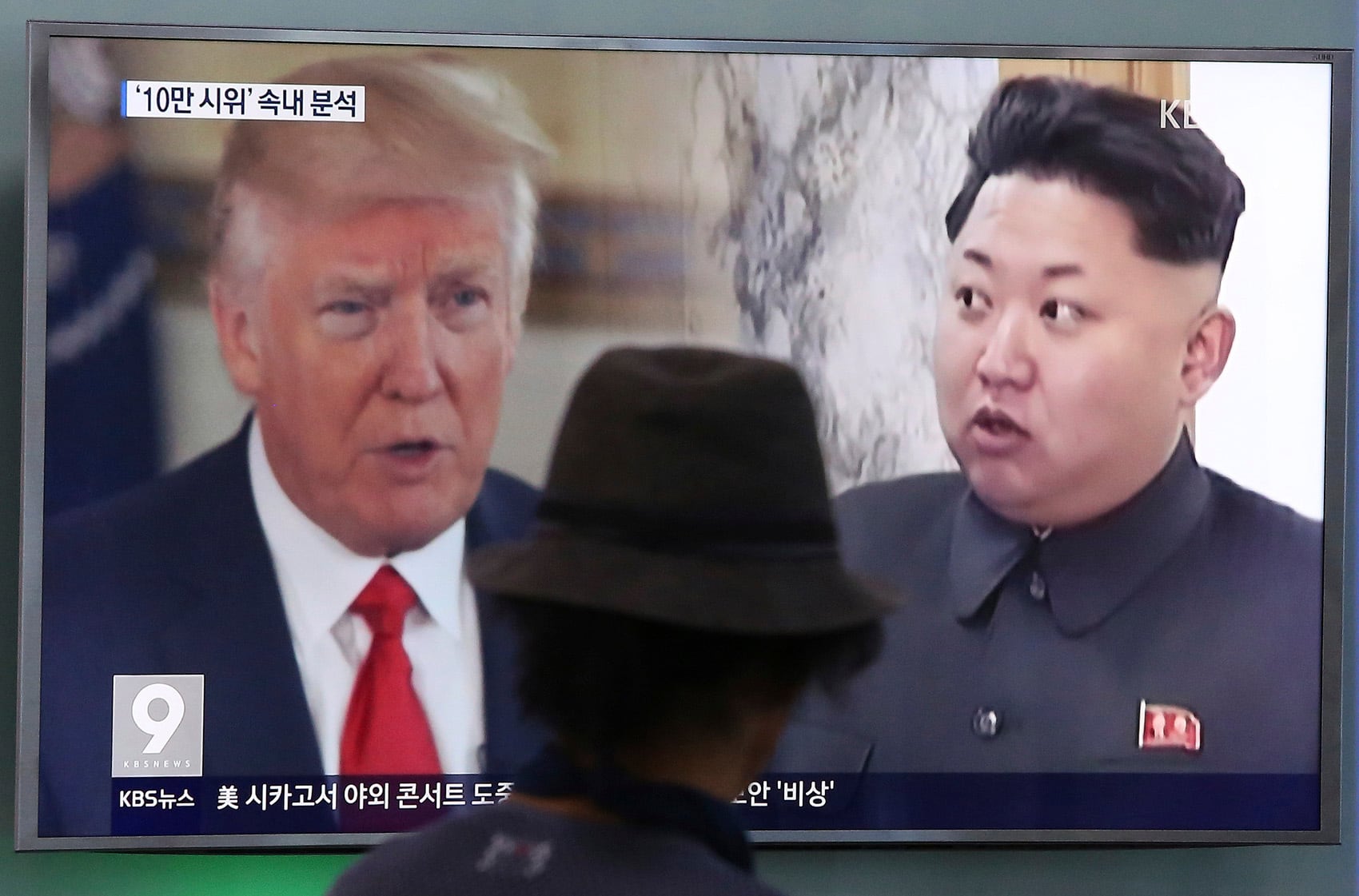WASHINGTON — The Pentagon is asking Congress to move $416 million to missile defense programs that was originally allocated to other defense accounts as the Trump administration mulls military responses to North Korea’s recent belligerence.
The request, which requires congressional approval, would add the funding on several missile defense programs — some classified — mostly by taking it from unspent Army and Army Reserve operations and maintenance accounts in the fiscal 2017 budget.
The request, signed by Defense Department Comptroller David Norquist on Sept. 7, was obtained by Defense News.
Senate Armed Services Committee member and a missile defense advocate Sen. Dan Sullivan, R-Alaska, hailed the plan. But it has triggered pushback from the House Armed Services Committee’s ranking member, Rep. Adam Smith, who said the money would sacrifice readiness and not have an immediate effect.
“Mr. Smith has significant concerns about taking that much money from near-term readiness and putting into missile defense programs that will not have an impact until the 2020s at the earliest,” said a spokesman for Smith, D-Wash.
According to the request, the operations and maintenance money could not be obligated because the 2017 budget arrived later than usual. Congress passed omnibus spending legislation in May.
[House lawmakers want space-based missile defense strategy]
DoD proposes adding a total of $136 million to start raising the number of ground-based interceptors from 44 to 64 and to add 20 new silos in a new Missile Field 4 in Fort Greely, Alaska.
DoD also asked for money to accelerate upgrades for four Aegis Ballistic Missile Defense ships, which would enable them to launch the Standard Missile-3 Block IIA missile.
It also adds funding for a variety of threat-discrimination technologies and radars. That includes a floating Sea-Based X-band radar, evaluations for a nascent medium-range discrimination radar in Hawaii to help Alaska-based interceptors and a life extension for the Cobra Dane surveillance radar on Shemya, Alaska.
Gen. Joe Dunford, chairman of the Joint Chiefs of Staff, teased the previously unpublished request during a reconfirmation hearing Tuesday, but in his wording, created some confusion about where the money would coming from.
Sullivan had asked Dunford whether the administration “plans to, at least from a supplemental perspective or working with the Congress, beef up our missile defense.” Dunford replied, “We did do exactly as you suggest, and we’ve submitted it.”
[House pressures Army to buy new missile defense radar that the White House opposes]
“We looked at additional radar systems. We looked at THAAD systems, Patriot systems. As you know, on the [pending 2018 defense policy bill], there’s additional interceptors — additional 21, I think, is the number that I recall — that are in there,” Dunford said. “All of those issues are part of — we did an immediate, kind of, supplemental for — just as your suggestion, for ballistic missile defense.”
“I think it was maybe the first or second week of August to make sure it was in time for the budget cycle,” Dunford said. “So I think what you have outlined in the NDAA, combined with the supplemental that the administration has put together, will meet the immediate needs.”
The reprogramming request would apply to the 2017 budget, whereas the term “supplemental” implies the administration may yet make a request for additional funding next year beyond the president’s 2018 budget request.
Key lawmakers or their staffs said they had yet to receive any such supplemental, and a Pentagon spokesman said there was “no decision when or if” the department would send over a supplemental request, though one administration official said they are “certainly looking at opportunities for increased investments” in fiscal 2018.
U.S. President Donald Trump said in August his administration would “be increasing our budget by many billions of dollars because of North Korea, and other reasons having to do with the anti-missile. ... We are going to be increasing the anti-missiles by a substantial amount of billions of dollars.” At the time, he said such an increase would be delivered to Congress quickly.
RELATED

If there is to be a 2018 supplemental request, the extra money seems likely to receive support from defense-focused lawmakers.
“We need it; we need it; we need it for missile defense,” Senate Armed Services Committee Chair John McCain, R-Ariz., told reporters Wednesday. “They are still putting it together.”
“I think people just see it’s got to be a key part of our North Korea strategy and our Iran strategy,” said Sullivan, who introduced legislation this summer to bolster missile defense. “I like the fact that they’re motivated on it.”
Joe Gould was the senior Pentagon reporter for Defense News, covering the intersection of national security policy, politics and the defense industry. He had previously served as Congress reporter.
Aaron Mehta was deputy editor and senior Pentagon correspondent for Defense News, covering policy, strategy and acquisition at the highest levels of the Defense Department and its international partners.







